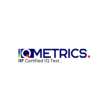How Does One Check IQ for a 4-year-old child?
How Do You Test The IQ of a 4-year-old?

When it comes to assessing an individual's intellectual potential, IQ tests are a commonly used tool. However, administering these tests to young children, especially 4-year-olds, can be quite challenging. In this blog post, we will explore the process of assessing IQ in young children, focusing specifically on 4-year-olds. We will delve into the intricacies of cognitive abilities, the use of standardized tests, and the interpretation of IQ scores.
Cognitive abilities are multifaceted and encompass various aspects such as reasoning, problem-solving, memory, language, and attention. Assessing these abilities at such a tender age is no easy task. A child's cognitive development progresses rapidly during their early years, and their abilities can change significantly within short timeframes. Nonetheless, researchers and educators have devised methods to evaluate intellectual potential in young children, including 4-year-olds.
To measure IQ, professionals often rely on standardized tests. These tests are designed to provide a comprehensive assessment of a child's cognitive abilities, compared to other children of the same age. These assessments are usually administered by psychologists or specialized professionals, who possess the necessary expertise to conduct such evaluations accurately.
When assessing IQ, a standardized test typically consists of various tasks that evaluate different cognitive domains. These tasks may involve puzzles, shape recognition exercises, verbal questions, and memory tests. These tasks are carefully constructed to assess a child's problem-solving skills, memory retention, and language abilities, among others. By analyzing a child's performance across these tasks, professionals can gain insight into their intellectual capabilities.
Once the child has completed the test, their performance is scored and compared to a larger sample population of children their age. These scores are reported in the form of an IQ score, which represents the child's cognitive abilities relative to their peers. An average IQ score for a 4-year-old child would typically be around 100, with a standard deviation of 15. This means that the majority of 4-year-olds would fall within a range of 85 to 115, with fewer scores falling outside of this range.
It is vital to understand that an IQ score is not a definitive measure of a child's intelligence. It is simply a quantitative representation of their performance on the test. In addition, an IQ score does not capture the full range of a child's cognitive abilities. Different individuals excel in different areas, and a single test cannot fully capture the complexity of human intelligence. Therefore, it is important to interpret IQ scores cautiously and consider them as just one piece of the puzzle when measuring a child's intellectual potential.
To accurately interpret an IQ score, professionals take into account various factors. These include the child's age, the specific test used, and the test's reliability and validity. Additionally, an understanding of the child's overall development and their strengths and weaknesses is crucial. Only by considering these factors can professionals provide a nuanced and accurate interpretation of a child's cognitive abilities.
It is worth mentioning that IQ tests for 4-year-olds are not without limitations. As previously mentioned, a child's cognitive abilities at this age are still rapidly developing. Therefore, an IQ score obtained at 4 years old may not be an accurate predictor of future cognitive abilities or academic success. It is not uncommon for IQ scores to change significantly as a child progresses through their developmental stages. Continuous assessment and monitoring of cognitive abilities throughout a child's early years are necessary to obtain a more comprehensive understanding of their intellectual potential.
In conclusion, assessing IQ in young children, including 4-year-olds, is a complex task. Through the use of standardized tests and the careful consideration of various factors, professionals can gain insight into a child's intellectual capabilities. However, it is important to remember that an IQ score is not a definitive measure of intelligence and should be interpreted with caution. Ongoing assessment and attention to a child's developmental journey are crucial for obtaining a holistic understanding of their cognitive abilities.
About the Creator
IQ Metrics
IQMetrics.org is a comprehensive platform offering insightful resources on IQ testing, assessments, and understanding intelligence metrics.
http://iqmetrics.org






Comments
There are no comments for this story
Be the first to respond and start the conversation.